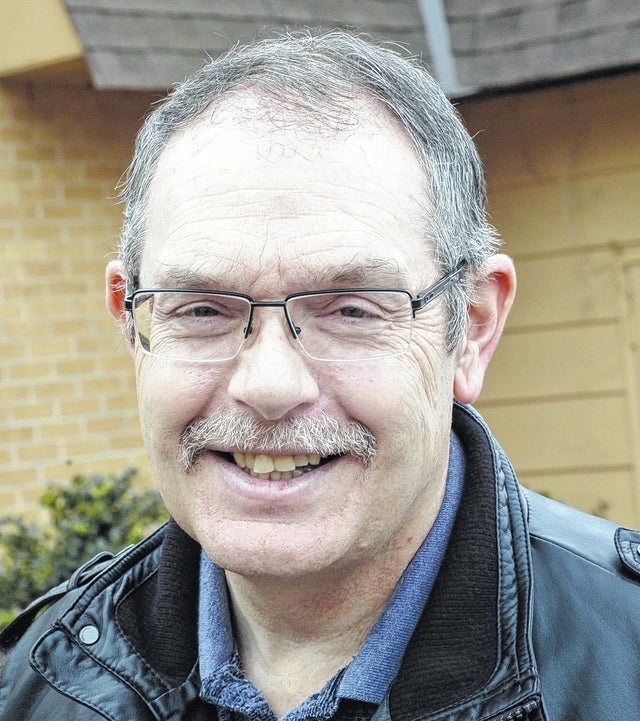Troup extension agent: Fighting fire ants on the home turf
Published 12:00 am Friday, November 13, 2015

With all the rain that we’ve had over the last several weeks, those red mounds are making another appearance.
The heavy rainfall has been displacing the fire ants’ usual homes so they have been relocating. The weather has been mild, and they have been sending out their foraging ants.
Just when you think it’s safe to go into the backyard you rediscover the fire ants are in action. Some folks sprinkle the top of the mound with bait and wonder why it doesn’t work. Ants don’t exit from the mound top. They have lateral pathways from the base of the mound.
All of us have experienced the painful stings from fire ants. Imported fire ant mounds can be found in almost every pasture in Troup County.
In some multiple-queen colonies there can be 200 or more mounds and 40 million ants per acre. That’s a lot of ants. These unwelcome visitors came to our shores almost 65 years ago.
How do you get rid of them? There are many home remedies from feeding them grits to pouring boiling water on the mound. In order to combat fire ants a little knowledge about their biology helps.
In each colony there are several types (castes) of adults: black winged males, red-brown winged females, one or more wingless queens and workers. Workers can be various sizes. When a mound is disturbed, the white objects that worker ants are rescuing are the various growth stages of ants: eggs, larvae and pupae.
The worker ants are wingless, sterile females. Their job is to protect the queen by defending the nest from intruders. They can remove the queen from danger and she only eats food that the workers or larvae have eaten first. They are the taste testers. The worker ants also care for the brood and forage for food.
Mating flights usually occur in the spring and fall in the late morning or afternoon after a rain. The male dies soon after the mating and the female sheds her wings and begins digging to start a new colony.
She lays about a dozen eggs and when they hatch seven to eleven days later she feeds them. They develop into worker ants that will feed the queen and subsequent generations.
From this point on the queen lays from 800 to 1,000 eggs per day. The typical colony houses 100,000 to 500,000 workers and up to several hundred winged forms and queens.
The mound may extend several feet into the earth. The mound above the surface often functions as cooling chamber for the mound.
On hot summer days, the ants may be three feet below the surface cooling off. There are also lateral passageways extending from the mound.
Some colonies have multiple queens and ants move from one mound to another. Weather conditions such as heavy rains can force them to move and they can re-establish their colonies very rapidly.
The best way of treating the home lawn is the two-step approach. The first step is to broadcast the bait at least once or twice per year. This will usually result in 90 percent control of the mounds.
The bait must be fresh, recently purchased and applied when the ground is relatively cool. The worker ants won’t collect it if their feet are too hot.
The second step is to be patient and allow the bait to work.
Use a mound treatment for any nuisance mounds or a re-invasion from another yard. If you don’t have many mounds, treating individual mounds may be the way to go.
As mentioned above, don’t put the bait on top of the mound. Sprinkle the bait around the base of the mound to catch the ants on the lateral paths.
There are several different kinds of baits and they have different residual effects. Read and follow the label directions. Some products require water to activate.
What’s going on in Extension?
Jefferson Street Market begins Saturday mornings from 9:30 a.m. to noon at 625 Jefferson St. just off of Dallis Street.
Nov. 17: Troup County Cattleman’s meeting, 7:30 p.m. at the Ag Center. Meal starts at 7 p.m.; the cost is $6. Pam Wilkes of the FSA and Rory Richardson of the NRCS will be speaking about the cost share programs.
Nov. 19: Timber Growers Meeting, 7 p.m. at the Ag Center. Dr. Ben Jackson, Daniel Westcot and Joseph Moore will speak on developing a forestry management plan for landowners.
Tree seedlings can be ordered from the Georgia Forestry Commission, 706-845-4122.
If you have any questions or concerns, stop by or call the office.


